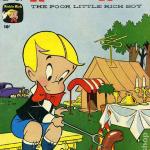Rick Steves is angry. You may not realize this at first glance because Steves is such a gentle, affable, consistently kind man and he continues to be all of those things even while angry. But still, he’s furious, because every good thing he’s ever stood for or called for is under attack, for no good reason, and it means that millions of people are going to die.
 If you’re not familar with Rick Steves, he’s a long-time travel writer who hosts weekly programs on both PBS and NPR. These shows are extremely PBS and NPR. Like their host, they can sometimes be so low-key, gentle, and good-natured that they come across as a little bland. But once you settle into their vibe, they can be interesting and even exciting for all the same reasons that Steves finds travel interesting and exciting — because it’s all about people and getting to share in their stories and cultures.
If you’re not familar with Rick Steves, he’s a long-time travel writer who hosts weekly programs on both PBS and NPR. These shows are extremely PBS and NPR. Like their host, they can sometimes be so low-key, gentle, and good-natured that they come across as a little bland. But once you settle into their vibe, they can be interesting and even exciting for all the same reasons that Steves finds travel interesting and exciting — because it’s all about people and getting to share in their stories and cultures.
International travel is now threatened by the American president’s declaration of economic war on every other nation, and by the administration’s hostility to international travelers coming here to America. The administration has also declared war on PBS and NPR. But those attacks on the essential foundations of his life’s work are not why Rick Steves is angry.
He’s angry because of his side job, in which he serves on the board of Bread for the World, the interdenominational Christian lobby for humanitarian aid.
I’ve written a bunch about Bread for the World here, often around their annual survey in which they ask Americans what percentage of the federal budget they think goes to international aid for the poor and then ask them what percentage of the federal budget they think ought to go to that. The results of that survey have been remarkably consistent over many decades. Most Americans think that international humanitarian aid is a huge percentage of the U.S. budget — 25% or 30%. And they think it should be less than that, “only” around 10%.
The reality, of course, is that American aid has never been anywhere near as big as 10% of the federal budget. It’s barely 1% — and is only that high if you include the nonlethal aspects of the military aid we send to Israel and Egypt and act like that’s the same as sending food or agricultural supplies to hungry people or digging wells in poor communities.
Steves is a huge supporter of Bread for the World, including producing and hosting a documentary for their work. This has never been controversial or even vaguely “partisan.” Until recently. Now, over the past 100 days Steves has watched as everything Bread for the World has fought for has been demolished, with nearly all of the international humanitarian aid Bread lobbied Congress to pass erased — illegally — by executive order or by Elon Musk’s ketamine-fueled attack on government.
And, yes, it is not exaggeration or hyperbole to say that this means millions of people are going to die. The abrupt end of all US aid will mean that Trump and Musk and Rubio will be responsible for more deaths than Pol Pot.
That is why Rick Steves is angry and why he — and you — should be angry. To channel some of that anger, this week’s edition of Travel With Rick Steves on NPR included a long segment with Eugene Cho, president of Bread for the World, in which Cho spoke about the lies being told and spread about international aid, and the deadly toll of those lies.












